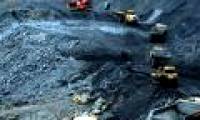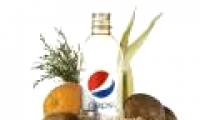
Shrimp shells can contribute significantly to the production of environmentally friendly biofuels.

Korean scientists have been studying a polymer used daily for plastics using biotechnology.

Take advantage of the village's organic waste to create honeycomb coal and charcoal pellets, use corn cobs to produce briquettes and fuel coal.

West Africa started the project launched by the United Nations Food and Agriculture Organization (FAO), building an agriculture with a diverse product.

Pepsi company has just revealed that they will use beverage bottles made entirely from plants, which are more environmentally friendly than traditional bottles.

US Secretary of Commerce Gary Locke once commented: 'Clean energy may be the biggest economic opportunity of this century.'

No dust, noisy car horns, no fossil energy to produce electricity are the hallmarks of green cities like Amsterdam, Freiburg, Reykjavík ...

Urban ecology model is a scientific and technical project integrating new technologies in construction and materials industries.

Located in Tokyo Bay, the eco-house with an area of 262 m2 of Panasonic is considered as the

Canadian-Taiwanese couple John Lamorie and Shelly Wu recently unveiled an environmentally-friendly school made of paper in the southern province of Pingtung.
 Shrimp shells can contribute significantly to the production of environmentally friendly biofuels.
Shrimp shells can contribute significantly to the production of environmentally friendly biofuels. Korean scientists have been studying a polymer used daily for plastics using biotechnology.
Korean scientists have been studying a polymer used daily for plastics using biotechnology. Take advantage of the village's organic waste to create honeycomb coal and charcoal pellets, use corn cobs to produce briquettes and fuel coal.
Take advantage of the village's organic waste to create honeycomb coal and charcoal pellets, use corn cobs to produce briquettes and fuel coal. West Africa started the project launched by the United Nations Food and Agriculture Organization (FAO), building an agriculture with a diverse product.
West Africa started the project launched by the United Nations Food and Agriculture Organization (FAO), building an agriculture with a diverse product. Pepsi company has just revealed that they will use beverage bottles made entirely from plants, which are more environmentally friendly than traditional bottles.
Pepsi company has just revealed that they will use beverage bottles made entirely from plants, which are more environmentally friendly than traditional bottles. US Secretary of Commerce Gary Locke once commented: 'Clean energy may be the biggest economic opportunity of this century.'
US Secretary of Commerce Gary Locke once commented: 'Clean energy may be the biggest economic opportunity of this century.' No dust, noisy car horns, no fossil energy to produce electricity are the hallmarks of green cities like Amsterdam, Freiburg, Reykjavík ...
No dust, noisy car horns, no fossil energy to produce electricity are the hallmarks of green cities like Amsterdam, Freiburg, Reykjavík ... Urban ecology model is a scientific and technical project integrating new technologies in construction and materials industries.
Urban ecology model is a scientific and technical project integrating new technologies in construction and materials industries. Located in Tokyo Bay, the eco-house with an area of 262 m2 of Panasonic is considered as the
Located in Tokyo Bay, the eco-house with an area of 262 m2 of Panasonic is considered as the Canadian-Taiwanese couple John Lamorie and Shelly Wu recently unveiled an environmentally-friendly school made of paper in the southern province of Pingtung.
Canadian-Taiwanese couple John Lamorie and Shelly Wu recently unveiled an environmentally-friendly school made of paper in the southern province of Pingtung.









 Why are calico cats always female?
Why are calico cats always female? How was the Pyramid of Khufu built? Scientists have finally found out the truth!
How was the Pyramid of Khufu built? Scientists have finally found out the truth! How rare are rare earths really?
How rare are rare earths really? Never-before-seen scene on Mars in this photo that took NASA 3 months to capture
Never-before-seen scene on Mars in this photo that took NASA 3 months to capture 100 million year old fossil of cannibalistic mosasaur
100 million year old fossil of cannibalistic mosasaur Revealing the fall of the Hittite empire and the fear of people today
Revealing the fall of the Hittite empire and the fear of people today The Irish Giant: The Most Controversial Tragedy in British History
The Irish Giant: The Most Controversial Tragedy in British History Find out what created the most bizarre super objects in the universe
Find out what created the most bizarre super objects in the universe